Psychologists define emotional resilience as the process of adapting well in the face of adversity, trauma, tragedy, threats, or significant sources of stress. Building emotional resilience helps cultivate inner strength and develop new coping strategies.
“When we learn how to become resilient, we learn how to embrace the beautifully broad spectrum of the human experience.”
― Jaeda Dewalt
To be alive is to be at constant risk of facing intense pain. Hard things will happen to all of us. Buddha’s first noble truth said it well:
“Life is suffering.”
Unforeseen tragedy will strike
The people you love will eventually pass away, or become sick. Some things you’ve worked on for years will be stripped from you. You may have harrowing battles with your physical or mental health. Some of your dreams will crash and burn. And if miraculously, none of this happens to you in the first half of your life, it will happen to someone close to you, and they will need your support.
The list of adversities goes on. If you are a human, and you have lived for any number of years, inevitably something difficult has happened to you. You can’t control whether or not life throws challenging things at you (spoiler alert: it will.) But you can control how you respond to those things.
This insight is at the heart of many Buddhist teachings: Accept the inherent difficulty in life, or any given situation, and focus instead on your relationship to the adversity.
Read How do you handle adversity? – A short wise tale to learn from
Because our interpretations of what happens, and attitudes toward it, are perhaps the only thing we can control. People squander so much time resisting adversity, wishing it would change, or dwelling on its presence.
The way that I see it, handling adversity is the master key to life. If you can do that, you become unfuckwithable. This whole ride feels so much smoother, and you drastically raise the upper limits of your success.
On this journey, you must be able to endure the storms and open yourself to becoming antifragile – where friction, shocks, and impacts are processed to make you stronger, wiser, and more creative. If you cannot, then the darker weather of life will only break your spirit down and ruin the fun in living.
This article is about how to do the former. Because at the core of these skills is something anybody can develop: Emotional resilience.
If you notice that you avoid difficult things, get easily flustered under pressure, or tailspin and lose control when bad news comes your way, this will help you immensely.
What Is Emotional Resilience?
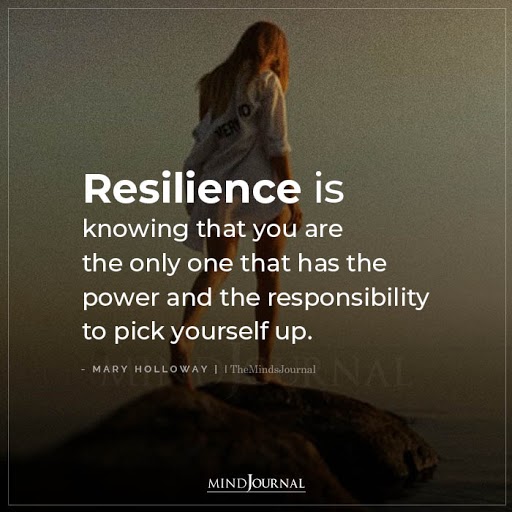
It is your ability to adapt to and move through hard times.
It is the durability of an optimistic, accepting, productive state of mind. It means you are able to remain clear and resourceful in any situation and flip negatives into positives.
Emotional resilience is what has you able to take (almost) anything in stride, not freak out, and keep moving forward. I snuck the “almost” there because there’s no such thing as being bulletproof. We all have our moments, which is why other people are crucial in this as well. But the work of developing that support network is still in our hands as well.
There are simple things that you can do on a regular basis to build more emotional resilience. So, that when those challenging days occur, you will be able to handle them.
To give your direction a little more definition, let’s break down some of the key characteristics you’re aiming to develop. With these tools, you can come out on the other side of anything with more strength, wisdom, and confidence.
Core Traits of Emotionally Resilient People
1. Ability to appropriately rely on others
I mentioned above that we all need the support of a network sometimes. That’s because we are tribal creatures. For millions of years, we have leaned on each other for support. Appropriate reliance means that you’re not leaning too much, or not at all. There’s a healthy balance in the middle.
Read 13 Things Emotionally Mature Men Do
Being at either extreme of completely co-dependent and completely isolated will cripple your emotional resilience. If you need to latch onto other people for everything, because you can’t walk alone, you’re just leeching off the resilience of others. But if you have no support, or you’re unwilling to get it, you will erode and break down from the inside out much faster. This often leads to self-destruction, in one form or another (ie. serious addiction, substance abuse, or suicide.)
2. Taking a bird’s eye view
In hard moments, you need to be able to zoom out and see the bigger picture. This isn’t about avoiding having to confront the difficulties and emotions at the moment. It’s basically remembering that “this too shall pass.” You know that everything is temporary – both the good and the bad.
This higher perspective is also part of what enables you to learn and create takeaways from adversity. In certain situations, you can see what could have been done differently to prevent something bad from happening. In others, you can see the way forward, understand what you’re about to learn, and how you’re going to be stronger for it.
3. Determination/Grit
This is your propeller. Without something inside of you pushing you forward, it’s easy to buckle under any pressure from life. Determination, or grit, implies an inner wanting to push back, move forward, and succeed. In essence, it is your will. Your will to live; your will to fight; your will to get back up and endure. Strong willpower is a symptom of the next trait on the list…
4. Belief in yourself

Having the fundamental belief that you are capable and valuable will carry you through so much of life’s hardships. What causes people to snap in the face of adversity, or being reduced to a blubbering mess, is clutching onto thoughts like: “I can’t handle this,” or “It’s not worth it.”
Believing that you CAN, that you matter, and life itself matters, brings a sense of importance that you have to figure out how to stick around and thrive. It creates that internal drive and determination to do whatever it takes to make it through. Building your capability and self-confidence is one of the biggest components of emotional resilience, which we’ll talk about in a moment.
5. Positivity
I’m not talking about Karen in HR, who skips into the office with her sugar-sweet, bubbly voice, announcing there are cupcakes in the break room because “it looks like everyone’s got a ‘case of the Mondays.’”
Positivity isn’t about shooting rainbows out of your ass. It’s about being able to see the upside in anything. Rather than marveling at what a shit sandwich you’ve been handed, you choose to recognize how the different aspects of it are going to make you grow, or challenge core parts of yourself.
Positivity allows you to see the gift in every challenge. It allows you to remember the inherent beauty and gift of life, even when you’re dealing with what seems like the ugliest parts of it.
So much of this world is steeped in negativity. It’s in the news that’s being pushed at you every day. And the horrendously small-minded, disrespectful blabbering and gossip that make up most of the social media and they lay-person’s small talk. Having a self-sustaining source of positivity established deep within yourself keeps you focused on the Truth, and on what matters, which is your health, success, and happiness.
Read Buddha Quotes To Rejuvenate You With Positivity
6. Humour
Having the ability to laugh at life and yourself will keep you alive. The fact that we’re all here, living this crazy experiment called civilization, and same-day shipping butt plugs to our doorsteps – it’s absolutely absurd. People who recognize this fundamental ridiculousness have lighter spirits, even in the darkest of times. They giggle at their minds and fuck ups, and how funny life can be.
Read 40+ Hilarious Spiritual Memes That Will Make You Laugh Out Loud
All of these qualities don’t come naturally to everyone. Some lucky people absorbed them from great mentors, or healthy, high functioning parents. Other people happened to cultivate them the hard way while battling their own demons in the trenches of life.
But it doesn’t have to be luck or trial by fire. If you’re looking to upgrade your emotional resilience, there are specific things you can do to build those muscles, and without having to enter full-on crisis mode.
Here are six ways that you can increase your emotional resilience
1. Regularly try challenging things
Low self-esteem will run from challenges, whereas high self-esteem faces them. Some people engineer their entire lives to insulate themselves against discomfort. All this does is set you up to be utterly crippled when reality violently intrudes and bursts the bubble of your illusionary safety.
So, how does challenging yourself help?
It boosts your self-esteem. It makes your spirit, or will, more strong and rugged. Intentionally stepping into moments and scenarios that activate your sympathetic nervous system creates familiarity and comfort with tackling adversity head-on. Then, when you see that you’re perfectly fine at the moment, you walk away feeling expanded and exhilarated.
This is how you start to form the belief “I can handle anything.” Successfully navigating stressful moments is what builds self-confidence and makes you feel unfuckwithable.
Challenging yourself doesn’t have to mean getting dropped naked into the jungle with only a pocket knife. You can find challenges in taking a cold shower at home, or smiling and saying hello to people you pass on the street or leaving the house without makeup on, or doing a 5-minute set at an amateur comedy open mic. Whatever that thing is for you that arouses a bit of fear.
If you pay attention, you will find opportunities every single day to challenge yourself. Watch your mind and body as you move through the world.
When do you shrink and move away from people, situations, or taking certain actions? When do you avoid eye contact with others? Where do you become overly concerned with how you look to other people? Where do you negotiate and bargain with yourself to break your word, or procrastinate and put things off until next week?
Read 6 Challenges You Need To Face To Get Better At Life
Everyone has different set points for their own emotional resilience, as well as things they consider “challenging”. But no matter where you are, you can start paying attention to those feelings of avoidance and discomfort. Once you have sharpened this awareness, you will discover an endless supply of customized challenges waiting to be tackled.
(Key point: it isn’t just that self-esteem and resilience come from trying difficult things and winning/coming out victorious. Merely the act of attempting difficult things builds self-esteem because it trains your identity to believe that you are someone who is capable of tackling hard things. Winning is secondary. Attempting/leaning into the hard things is its own reward.)
2. Invest in your relationships and support systems
The more community you have, and are genuinely, deeply connected to, the better you will perform when times of struggle come your way. When you’re overwhelmed and going through a hard time, your external support system effectively lends you their collective emotional resilience.
They fill your cup when it’s empty. They help you think in healthier ways and brainstorm solutions. They remind you of your strength and capacity. They believe in you when you can’t believe in yourself. They listen and hold space when you need it. They have your back and help you keep your shit together.
Read 7 Common Relationship Problems And Simple Ways To Fix Them
No matter how wickedly strong and self-sufficient you become, at some point, we will all need other people in order to get by. While you work on building your internal resources, be sure to build up your outer resources as well.
Investing in these relationships looks like actively prioritizing quality time with people, and setting dates for group get-togethers. When you’re in each other’s presence, you’re taking the conversation to more intimate and emotionally vulnerable places. You share your full truths, or ask for and offer support where it’s needed.
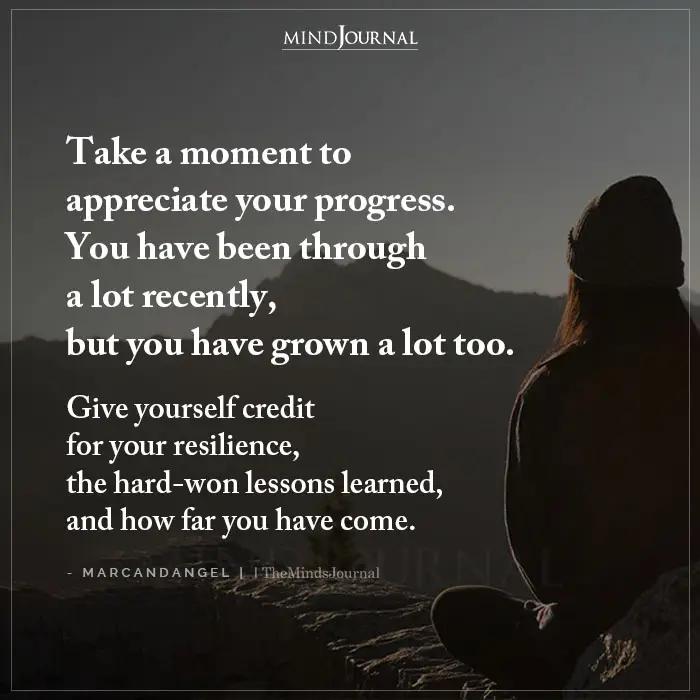
Read How To Deal With Passive Aggressive People In Your Life
It’s fine to bullshit and laugh sometimes. But sadly, that’s the extent of many people’s friendships. When shit hits the fan, they feel like they have no one to turn to, even though they have a network of people they hang out with regularly.
What makes it easy for you and other people to reach out during hard times is already knowing that it’s safe to do so. How you interact now is setting a precedent. Through demonstration, let those around you know that radically honest, dark, and ugly conversations are welcome, honored, and appreciated. Having friends that expect each other to lean on them, and get lovingly frustrated when they don’t, is more precious than gold.
3. Be the dominant creator of positive change in your life
Alongside facing challenging moments, this point is another huge contributor to strengthening beliefs like “I CAN. I am capable, valuable, and I can get through anything.”
The heart of it can be summed up into three words: Start taking charge.
Life doesn’t just throw success and positive change at you. Yes, sometimes great things, people, or opportunities will come your way. But very few things will stick or take root if you’re not already off your ass and actively engaged in living.
Read Positive Changes You Experience When You Actually Start Thinking For Yourself
If you’re unsatisfied with something, no one is going to come along and save you, or clean up your mess, or put in the work.
Get up, make it better, or get rid of it.
That might mean literally cleaning up your home. Do you want to feel healthier, lose weight, and get stronger? Then go to the gym, throw the shit in your cupboards in the trash, and trial new ways of eating to see what makes your body sing.
If you are chronically broke or feeling tight on money, see what excess crap you can sell, or learn how to create alternative revenue streams. If you have any existing skill sets you can improve upon and develop, put in the practice, and find a higher-level mentor to show you the way to more greatness.
This is about seeing real-time impacts in your own life, and knowing that you created them; your internal will was the sole agent of change. The results you get will feedback into your beliefs of what’s possible, and what you can produce, which fuels more action and badassery.
4. Build out your stress management tool kit
The baseline level of stress in your body and mind massively dictates how you will (or won’t) respond to adversity. Imagine brake pads on a car that are full, fresh, and thick, versus another set that are completely worn down to metal grinding on metal. That is the equivalent of your nervous system with and without stress management.
Read 3 Effective Tips To Vent Without Increasing Your Stress Levels
Besides your belief in your capabilities, emotional resilience is largely dependent on a regulated, balanced nervous system. I’m sure you’ve experienced the downside of this before. When you’re fully taxed and strung out, you can barely even handle the mental task making a grocery list, let alone handling real issues. You get irritable, clouded by brain fog, and depressive.
There are hundreds of ways to alleviate all that stress and thicken up those neurological brake pads. Common ways include:
- Sweating it out with infrared saunas
- Taking an extended, sensual bath
- Journaling out thoughts and feelings on paper
- Meditation, yoga, and floatation therapy
- Talking it out with friends or therapists
- Self-massage and foam rolling
- Going for a long walk in a forest and/or near a body of water
- Supplementation with natural herbs and minerals
- Creating art, or playing instruments
Experiment with what feels right for you. Whatever your tools are, once you identify them, you can have them in your back pocket at all times. This way, you know what’s going to work for you when times get tough. You also know what routines to get back into when you suddenly realize you’re feeling overwhelmed and stretched too thin.
5. Exercise
Regular workouts combine challenging yourself by taking charge of life and managing your stress. Both your mind and your body will be stronger and more resilient. That is if you are really showing up for it.
While I acknowledge the consistency, doing the same casual exercise routine for years on end doesn’t build anything. It just barely maintains the level of strength and fitness you’re currently at. The approach to physical activity I’m talking about involves grit and determination.
In each session, keep pushing yourself to increase the distance, time, reps, or weight. It doesn’t need to be by much. Just as long as you keep pushing the envelope. If you know you’ve proven to yourself that you’re not the best at doing this on your own, then hire a trainer for a few months. They will not only keep you safe and injury-free, but they will pull a level of performance out of you that you’ve never seen before. Then you can use all those lessons on your own going forward.
Read Emotional Muscle Memory: How To Release Painful Emotions Trapped In Your Body
Get yourself out to the gym even when you don’t want to.
Battling the little voice in your head that says, “Naaah, what about tomorrow?” and getting out the door is already a huge win. When that voice comes back mid-workout and tells you to quit, or call it a day and hit the shower, tell it to go fuck itself and do one more set of anything – just to prove to yourself that you can take the reigns whenever you want to.
On the biochemical level, moving your body will also greatly help regulate your moods and keep you feeling happy, energized, and optimistic. Science backs this up ten-fold.
6. Laugh
If you can’t laugh at life then you’re absolutely fucked. A sense of humor is essential if you want to easily deploy emotional resilience.
What this means is not taking everything so seriously. You have a looser grip on life. Short of the apocalypse, you know that nothing is the end of the world. The opposite of this attitude would be living in complete fear and anxiety; afraid of misfortune, failure, and death.
You will always struggle through life unless you can learn to laugh at your own faults and limitations, and even at death itself.
This is a huge reason why stand-up comedy exists. And it’s also why some of the funniest jokes are about the darkest and most fucked up things in life. Comedians make room for us to feel understood, to forget our troubles, and at the same time to remember that they’re not so bad. If you’re feeling disconnected from laughter and humor, I highly recommend getting out to live comedy clubs (and spending more time with your funniest friends) as a way to rekindle that energy.
All of these points can become daily habits and reflexes. Once you have begun to apply effort in all areas, what happens is that you start creating shifts in your character – how you think and see the world. You beef up your psychological and emotional musculature and prepare your mind for anything.
You can move more swiftly through any hardship with ease and grace, and become a support system for those around you. Once you get to that level, you’ll experience rewards and fulfillment beyond what you ever thought was possible.
Read How To Be A More Resilient Person?
Dedicated to your success,
Jordan
So, how did you boost your emotional resilience? What are the secrets of resilient people? Watch out for this video below:
Written by Jordan Gray
Originally appeared in Jordan Gray Consulting
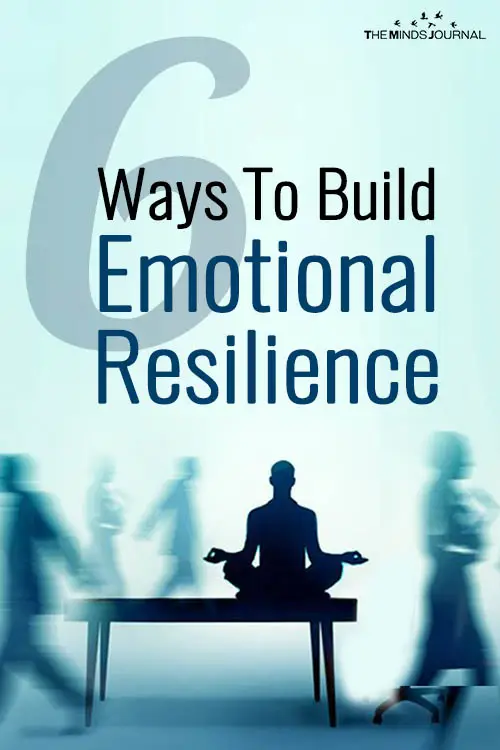
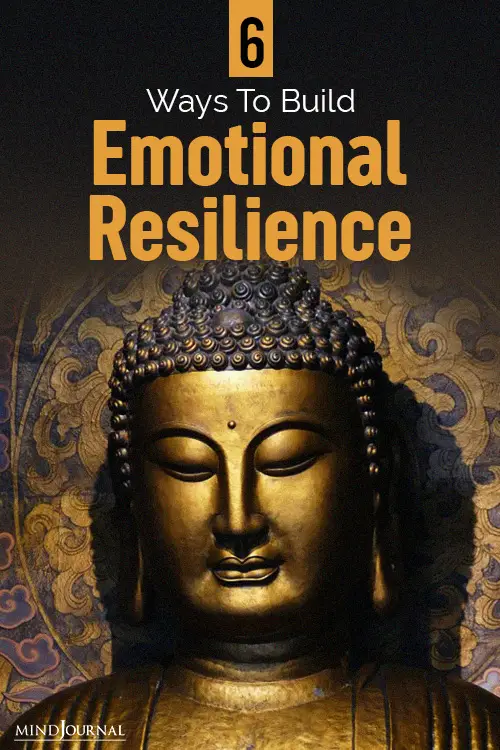
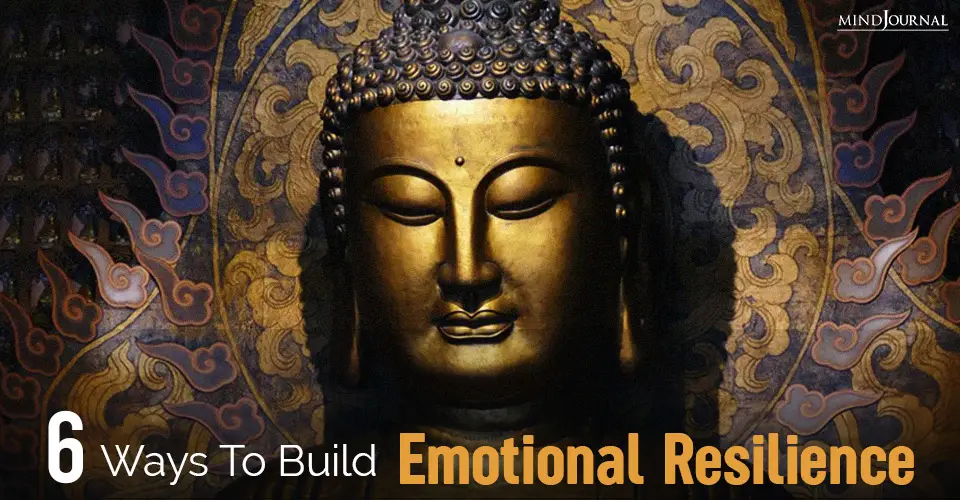







Leave a Reply
You must be logged in to post a comment.